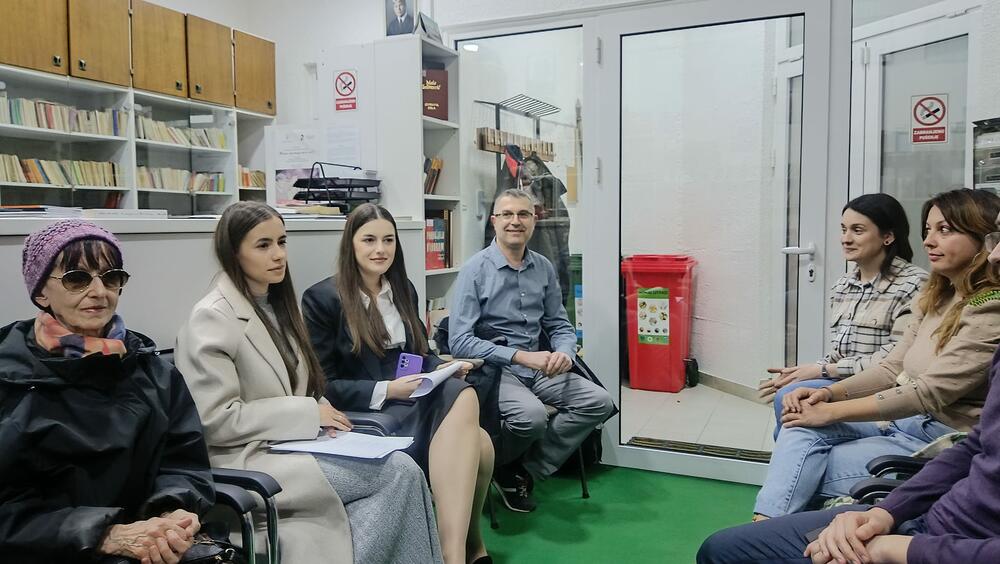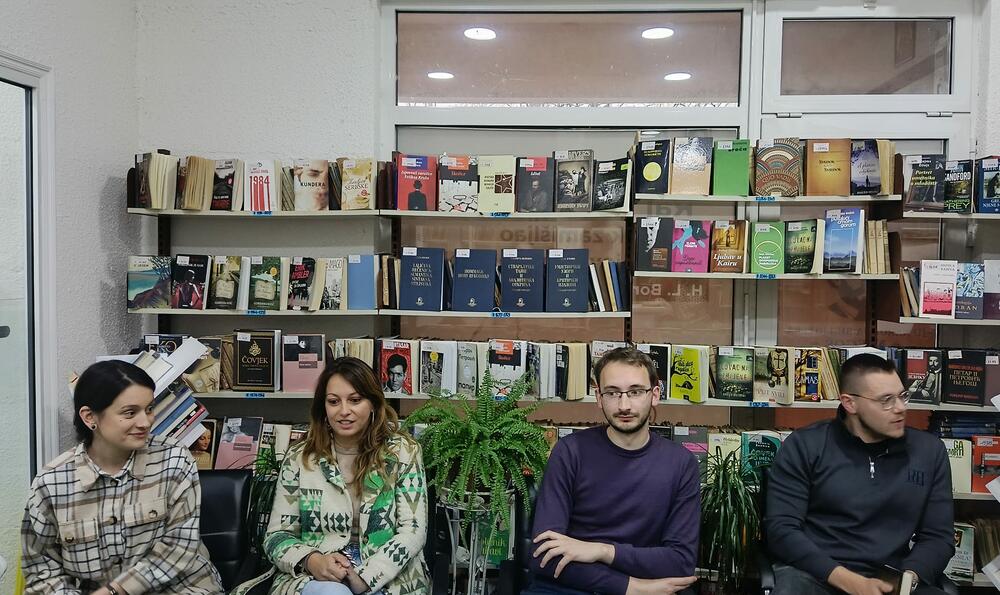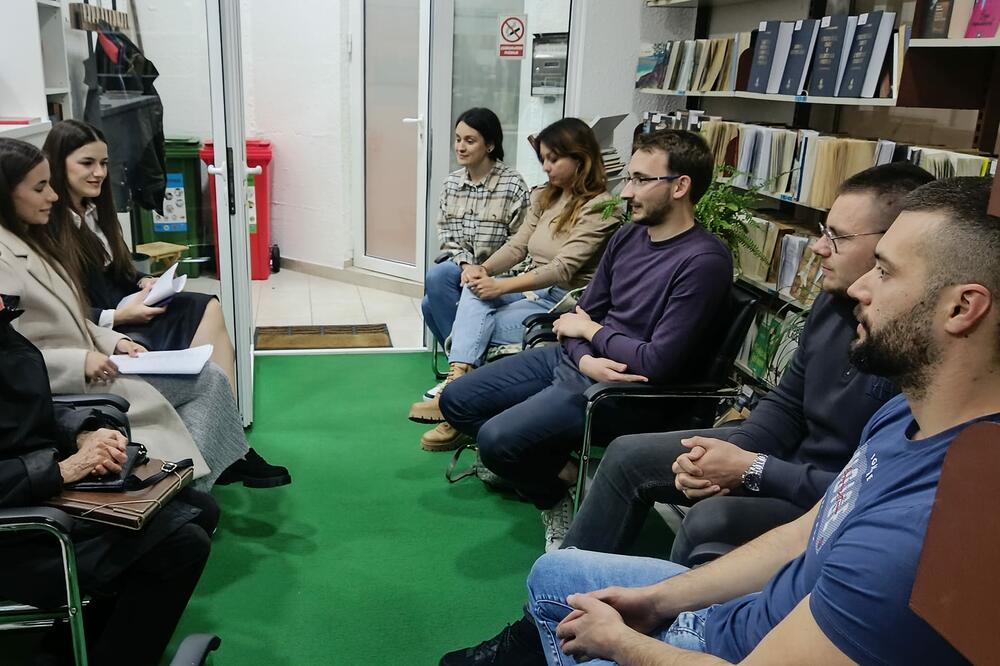"A beautiful thing is a joy forever," says the English romantic John Keats. And the thing that does not lack beauty, and has an abundance of joy, is poetry.
Guided by Keats' verse, the National Library "Njegoš" from Nikšić decided to mark the World Poetry Day with a reading of poetic creations, but also with a discussion of poetry by the participants of the Readers' Club.
"The aim of marking this day is to promote the reading and writing, publication and study of poetry. The intention is also to give recognition to national, regional and international poetic movements, as well as to support linguistic diversity through poetic expression. We also want to encourage dialogue between poetry and of other arts, and to draw the media's attention to the fact that poetry is not an outdated form of art, but one of the ways for society to restore and confirm its identity," announced the "Njegoš" Library.

The adult department of the National Library "Njegoš" gathered the members of the Readers' Club who, along with the verses of Crnjanski, Matić, Banjević, as well as Bukowski, Neruda and Gwendolyn Brooks, discussed whether poetry must be a tightly organized way of expression and agreed that poetry is not enslaved by forms, but is "free to breathe and live as the poet wants".
"With an indispensable review of Njegoš's verses and a short discussion about them, the members of the Club drew attention to the fact that poetry directs the reader to associations outside of everyday language and that ordinary things, events and thoughts acquire new associative frameworks. Citing examples of famous prose writers who also tried their hand at writing verses, members of the Club read poems by Andrić, Hesse and Borges, and continued the conversation by confronting arguments about whether prerequisites are necessary for understanding and experiencing a poetic impression, and if so, whether they are education, sensitivity to lyrical expression, closeness to the tradition within which is a poem written, knowledge of language and literary expression," reads the Library's announcement.

Readers' Club participants believe that poetry today, as a type of art, is unfairly marginalized in all segments of culture.
"With the discussion of Baudelaire, Yeats, Lermontov, Mayakovsky, Blok, Pasternak, as well as Lalić and Zogović, the thesis that poetry is not read today, that it is a closed and elitist category, was refuted. On the contrary, poetry is 'joy forever', as he says and the slogan that marked her day," said the Library.
The one-and-a-half-hour gathering was brought to an end with verses by Vito Nikolić, Mira Alečković, Rist Ratković, Gustav Krklec, Miroslav Antic, Vasko Popa, Desanka Maksimović, Velimir Rajić, Adam Zagajevski, Nikola Madžirov, Enver Muratović and Šaban Šarenkapić, and the conversation with the members of the Club was led by Darko Nikolić.
In 1999, UNESCO established March 21 as the World Poetry Day with the aim of promoting reading, writing, and publishing poetry, as well as encouraging and recognizing national, regional and international movements.
Bonus video:




